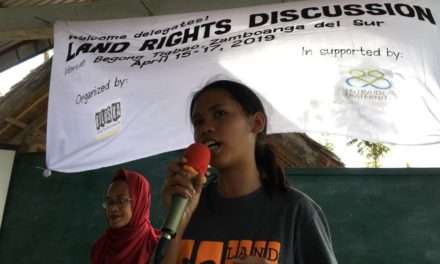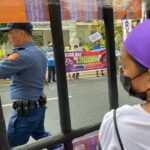by NEPOMUCENO MALALUAN and JENINA JOY CHAVEZ
The Asean Charter includes as one of the purposes of the Association of Southeast Asian Nations, the promotion of “a people-oriented Asean in which all sectors of society are encouraged to participate in, and benefit from, the process of Asean integration and community building”.
As Asean moves ahead with work relating to the implementation of the Asean Charter including through the Road Map for an Asean Economic Community (AEC) and the Asean Intergovernmental Commission on Human Rights (AICHR), it is high time that Asean made good its rhetoric of people orientation, and started the process of developing and adopting a Freedom of, or Access to, Information Policy for Asean.
By this we mean a set of concrete rules or policies providing for the substantive and procedural details by which the people in the region are able to access information produced or received by Asean and its many organs in the course of its work, subject only to a narrow list of reasonable exceptions.
– We claim this as a right, based on public interest norms as well as internationally accepted legal principles.
– From a public interest perspective, an access to information policy will provide an indispensable platform to secure accountability, greater participation, and better policies for truly responsive community building in the region. It will also play a facilitating role for people’s advocacy on urgent regional concerns as well as in pushing for alternatives.
– On the legal front, the right to information is now recognised as an obligation not just by individual states but by intergovernmental bodies as well. Article 19 of the Universal Declaration of Human Rights states: “Everyone has the right to freedom of opinion and expression; this right includes freedom to hold opinions without interference and to seek, receive and impart information and ideas through any media and regardless of frontiers.” This article comprehends not just freedom of expression, but a distinct right to information as well, which is confirmed by state practice at both national and international levels.
At the state level, more than 80 countries have instituted freedom of information laws. In Asean, Thailand was an early starter with a constitutional right to information as well as an access to information law as early as 1997. The Philippines, while it has a right to information in its 1987 Constitution, has an ongoing broad campaign for the passage of a Freedom of Information Act. After a long-drawn campaign, Indonesia passed a Freedom of Information Act in 2008, and is now dealing with implementation issues. There is an emerging movement as well in Malaysia, and the start of discussions on access to information in Vietnam and Cambodia.
At the international level, there are regional and international instruments as well as emerging jurisprudence confirming the right to information. A number of international bodies such as the Asian Development Bank, the World Bank, the United Nations Development Programme, and the institutions under the European Union, have all adopted access to information policies or regulations. In a strategy meeting in Bangkok, various regional and national organisations committed to develop a draft access to information policy and launch a regional campaign for its adoption by Asean. The policy will include: an elaboration of the policy and legal basis for the instrument; the scope in terms of information and Asean organs covered, and to whom the right will be available; the list of exceptions; the procedure for access, including how to lodge requests, their processing, and the manner by which the information will be made available or the access is denied; an appeals mechanism; and provisions for record keeping and pro-active disclosure of information. They called on the governments of the Philippines, Thailand and Indonesia, having the most advanced national recognition of the people’s right to information, to take the lead in working for the reference of the matter to the Asean Summit for its inclusion in the agenda and work mandate.
In the meantime, the different organs of Asean would do well to already start building a practice on good record-keeping and transparency in their work. The Asean Community Councils, as they proceed to flesh out the Roadmap for an Asean Community, should make information on its continuing work accessible to people in the region both proactively and by being responsive to access requests. The same is true for the AICHR. These bodies should also be able to tap the Asean Secretariat as well as the Asean National Secretariats as conduits or mechanisms for record-keeping, proactive disclosure, and information request and access points.
For the people in the region, there is no escaping dealing with Asean. There is a need to reclaim people’s space in regional processes, policies, and governance, and to advocate an alternative regionalism – from Asean’s regionalism focused on security, non-interference, and market-based economic integration, towards a regionalism based on cooperation for equitable development, strong regional social policy, respect for human rights, responsible climate strategy, and people’s diplomacy and solidarity. There is also a need to articulate demands on urgent common people’s concerns in the region, including human rights, labour mobility and migration, health, environment, common susceptibility to crisis, and the regional development gap. All these require a working access to information policy in Asean, to make people’s intervention well-informed and effective.
- The authors are with the Solidarity for Asian Peoples’ Advocacies (SAPA) Working Group on Asean Task Force on Asean FOI
*originally published in the BangkokPost








